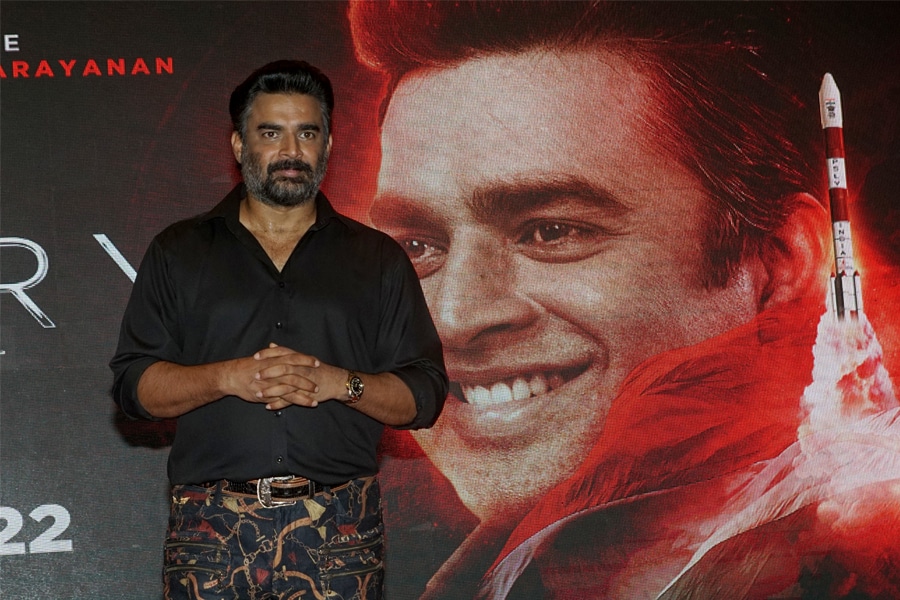
If you fail in OTT as an actor, then it's difficult for you to survive: R Madhavan
The actor—whose three films, including directorial debut Rocketry: The Nambi Effect, recently featured in the Top 10 of IMDB's list of top-rated Indian movies—on why going to the theatres is slowly going to be an exclusive experience, the discerning taste of the audience and not taking his success lightly
 R Madhavan
Image: Prodip Guha/Getty Images
R Madhavan
Image: Prodip Guha/Getty Images
A month after Ranganathan Madhavan’s directorial debut, Rocketry: The Nambi Effect, hit screens in July, it became the top-ranked movie on IMDB’s list of 250 top-rated Indian films by users. Two other movies—Tamil comedy-drama Anbe Sivam (ranked second) and Bollywood blockbuster 3 Idiots (seventh position)—starring the actor, featured in the Top 10. Humbled by the recognition, Madhavan is especially thrilled for the team of Rocketry, a biopic on Indian Space Research Organisation scientist S Nambi Narayanan, who was accused and later exonerated in an espionage case.
The actor has starred in OTT series Decoupled on Netflix and Breathe on Amazon Prime Video. The star of Tamil films such as Alaipayuthey, Irudhi Suttru and Vikram Vedha, as well as Hindi movies such as Rehnaa Hai Terre Dil Mein, Rang De Basanti, Tanu Weds Manu and Tanu Weds Manu Returns, among others, Madhavan, 52, speaks to Forbes India about the lacklustre response to cinema in recent times, the need to overhaul content, the challenge of performing for a web series and what keeps him going. Edited excerpts:
Q. Three of your films recently featured in the Top 10 of IMDB’s list of top-rated Indian films. Is it a validation of your choices as an actor?
To have your first film as a director, writer and producer at No 1 is quite a privilege. For the entire team of Rocketry, it’s like a shot in the arm because that’s what we wanted for Nambi Sir… that’s the reason why the film was made. It was more of a passion project than anything else.








